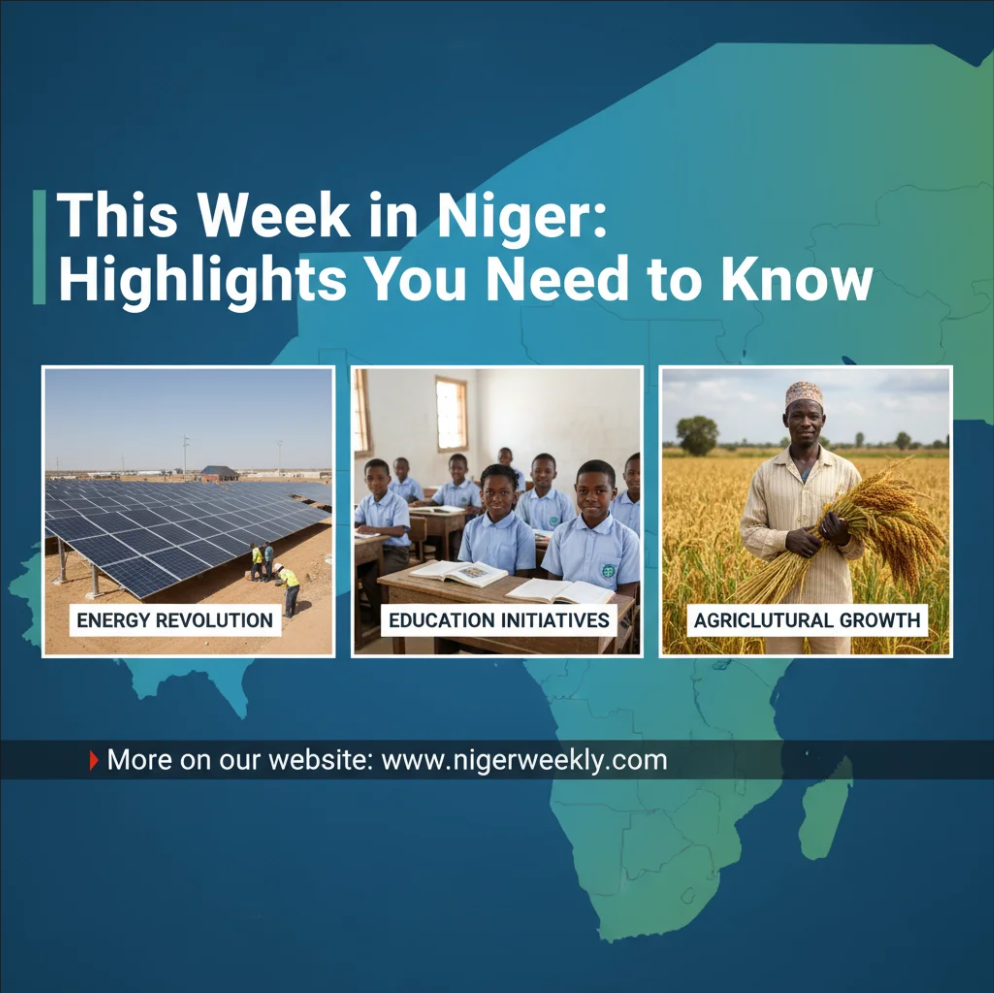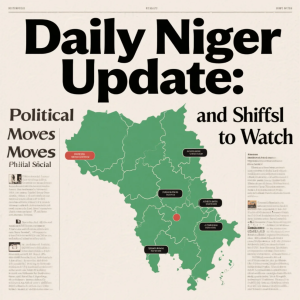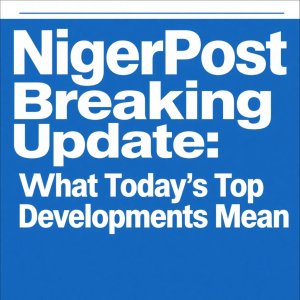The past week in Niger has been eventful, marked by significant political, economic, and security developments. From a deadly militant ambush to major moves in the energy sector and ongoing power shifts under the ruling junta, here are the most important stories shaping Niger right now.
🇳🇪 1. Deadly Ambush Rocks Tillabéri Region
At least 14 Nigerien soldiers lost their lives in a militant ambush in the western Tillabéri region, near the borders with Mali and Burkina Faso.
According to military sources, the attack began as what seemed like a robbery but quickly escalated into a coordinated assault. The government has since deployed reinforcements to the area.
Tillabéri remains one of the most volatile zones in Niger, plagued by cross-border extremist activity from groups affiliated with both al-Qaeda and ISIS. The incident is a grim reminder of the persistent security challenges facing the Sahel region.
⚙️ 2. Niger Nationalizes Uranium Project, Clashing with France
In a bold economic move, the Nigerien government has nationalized the Somair uranium project, previously co-owned with French company Orano.
This decision effectively transfers full control of one of the country’s largest uranium operations to the state.
France has condemned the nationalization and vowed legal action, deepening tensions between the two countries. Niger’s leadership defended the move as part of a broader push for economic sovereignty and resource independence, a trend gaining traction across Africa.
🏛️ 3. Junta Consolidates Power with New Political Structure
General Abdourahamane Tchiani, the leader of the 2023 coup, has officially been sworn in as transitional president for a five-year term.
Alongside this, several political parties have been dissolved, and new frameworks are being introduced for a “national rebuilding phase.”
Critics argue that this marks a step away from democratic governance, while supporters claim it’s necessary to stabilize the nation before elections can resume.
The international community — including ECOWAS and the African Union — continues to monitor the situation closely.
🪖 4. Civilian Militias Introduced to Support National Security
Niger’s government has launched a new civilian defense program called “Garkuwar Kassa” (translated as “Shield of the Homeland”).
The initiative aims to recruit volunteers to assist national forces in defending local communities against militant threats.
While framed as a patriotic movement, human rights advocates warn that arming civilians could lead to abuse, lack of oversight, and further instability if not managed responsibly.
🌍 5. Growing International Focus on Niger’s Strategic Role
Despite internal challenges, Niger remains strategically vital in the Sahel — rich in natural resources and pivotal to regional security operations.
With the recent diplomatic shift away from France and closer ties to Russia and neighboring military-led states, analysts say Niger is redefining its place in both African and global geopolitics.
Why These Developments Matter
- Security Impact: Renewed militant activity threatens regional stability.
- Economic Significance: Nationalizing uranium alters the balance of global energy partnerships.
- Political Shift: The junta’s consolidation signals a longer transition period ahead.
- Regional Influence: Niger’s stance is reshaping diplomatic alignments in West Africa.
Conclusion
Niger stands at a crossroads — asserting its independence, rethinking its alliances, and fighting to maintain internal stability. As these stories unfold, one thing is clear: Niger’s actions this year will have lasting consequences far beyond its borders.
For policymakers, investors, and global observers, keeping an eye on Niger is no longer optional — it’s essential.




